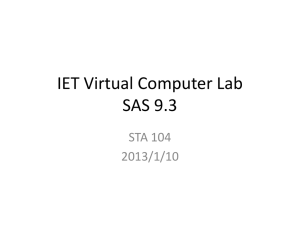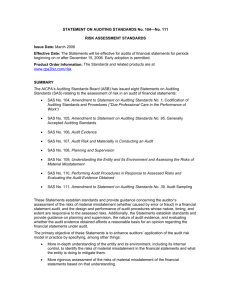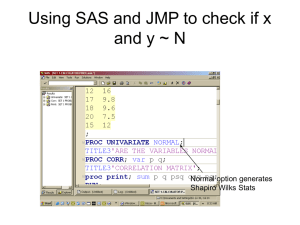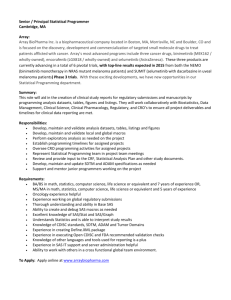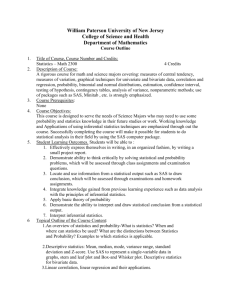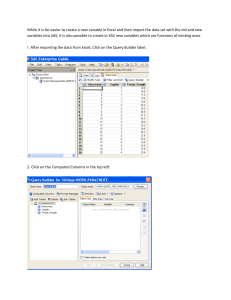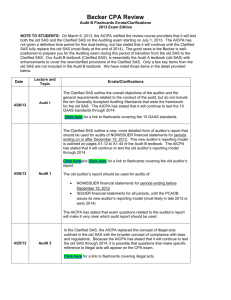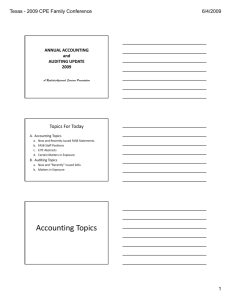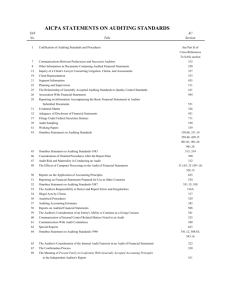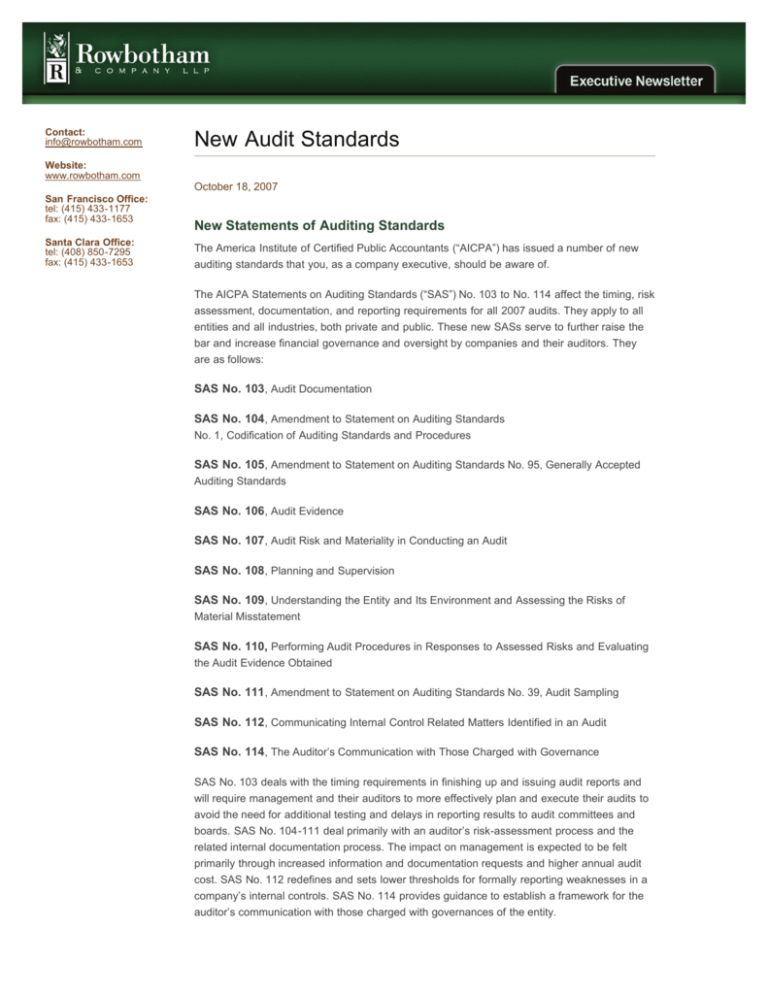
Contact:
info@rowbotham.com
Website:
www.rowbotham.com
San Francisco Office:
tel: (415) 433-1177
fax: (415) 433-1653
Santa Clara Office:
tel: (408) 850-7295
fax: (415) 433-1653
New Audit Standards
October 18, 2007
New Statements of Auditing Standards
The America Institute of Certified Public Accountants (“AICPA”) has issued a number of new
auditing standards that you, as a company executive, should be aware of.
The AICPA Statements on Auditing Standards (“SAS”) No. 103 to No. 114 affect the timing, risk
assessment, documentation, and reporting requirements for all 2007 audits. They apply to all
entities and all industries, both private and public. These new SASs serve to further raise the
bar and increase financial governance and oversight by companies and their auditors. They
are as follows:
SAS No. 103, Audit Documentation
SAS No. 104, Amendment to Statement on Auditing Standards
No. 1, Codification of Auditing Standards and Procedures
SAS No. 105, Amendment to Statement on Auditing Standards No. 95, Generally Accepted
Auditing Standards
SAS No. 106, Audit Evidence
SAS No. 107, Audit Risk and Materiality in Conducting an Audit
SAS No. 108, Planning and Supervision
SAS No. 109, Understanding the Entity and Its Environment and Assessing the Risks of
Material Misstatement
SAS No. 110, Performing Audit Procedures in Responses to Assessed Risks and Evaluating
the Audit Evidence Obtained
SAS No. 111, Amendment to Statement on Auditing Standards No. 39, Audit Sampling
SAS No. 112, Communicating Internal Control Related Matters Identified in an Audit
SAS No. 114, The Auditor’s Communication with Those Charged with Governance
SAS No. 103 deals with the timing requirements in finishing up and issuing audit reports and
will require management and their auditors to more effectively plan and execute their audits to
avoid the need for additional testing and delays in reporting results to audit committees and
boards. SAS No. 104-111 deal primarily with an auditor’s risk-assessment process and the
related internal documentation process. The impact on management is expected to be felt
primarily through increased information and documentation requests and higher annual audit
cost. SAS No. 112 redefines and sets lower thresholds for formally reporting weaknesses in a
company’s internal controls. SAS No. 114 provides guidance to establish a framework for the
auditor’s communication with those charged with governances of the entity.
The new standards challenge companies’ efficiency and effectiveness in audits. Companies
need to take a more active role with the auditors so as to better plan and execute their audits
for improved efficiency and effectiveness. It means more work and responsibilities for
companies and well as auditors.
Are you ready for more discussions in planning your upcoming audits in compliance with the
new auditing standards? Please feel free to contact Mark Kelly, Harriet Leung or Kenneth Lee.
Polaris International
Mark Kelly has been elected Vice Chairman of the North American Region of Polaris
International. Polaris International is an organization of independent member accounting and
tax consulting firms and Rowbotham & Company LLP has been a member since 1993. Aside
from his newly elected position, Mark is an audit partner, with twenty-two years of experience in
providing professional services to private and public middle market companies. He is in charge
of the firm's SEC practice. Mark can be reached by email at mkelly@rowbotham.com.
©2007 Rowbotham & Company LLP. All rights reserved.

